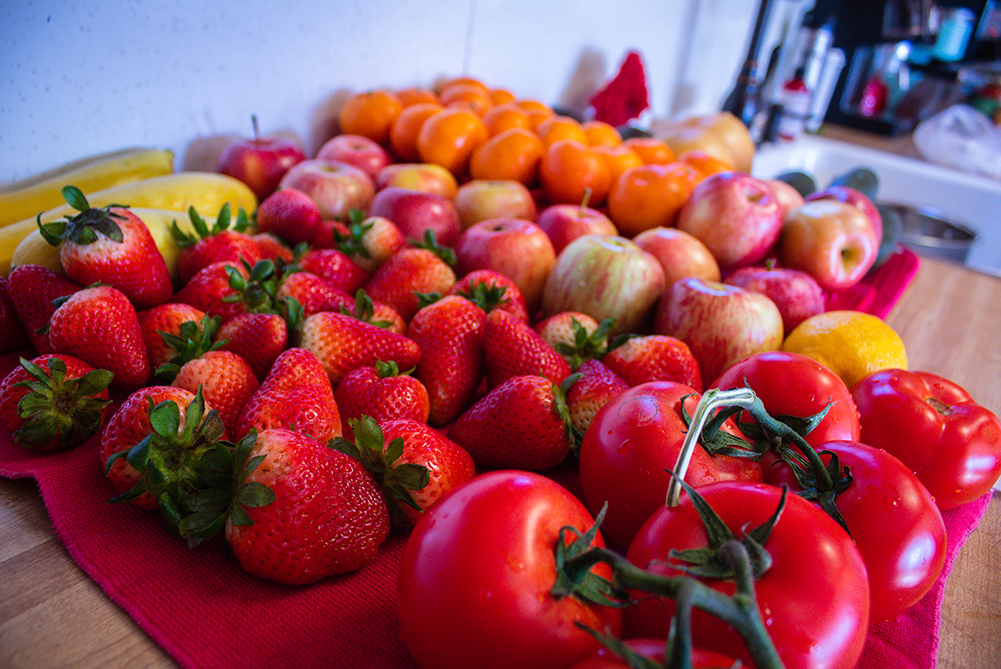Food insecurity poses a large problem in modern society, including in some Maine communities. With the ongoing pandemic causing an uptick in national unemployment rates, researchers have been documenting the effects of COVID-19 on food insecurity rates. Researchers Rachel Schattman, a University of Maine professor of sustainable agriculture, and Kathryn Yerxa, a professor through UMaine Extension, presented their findings as a part of the Senator George J. Mitchell Center for Sustainability Solutions Sustainability Talk Series on Sept. 21. Their talk was titled “Safety Nets and Bootstraps.”
Schattman and Yerxa conducted their research as a part of the National Food Access and COVID Research Team. They began with an overview of their presentation, and some key definitions and statistics for the audience to reference.
Food insecurity is defined by several properties. It is the limited or uncertain ability for households to attain food; factors such as quality, variety and nutritional value also play a role in what is considered stable food. Low vitamin intake, for instance, is a common issue in food insecure households.
The first data points presented were poverty rates, both nationally and within the state of Maine. Data collected in 2018 was used to determine food program participation. The national poverty rate in the year 2018 was 13.1% of the population, approximately 42 million people. Among those affected, 18% of children under the age of 18 were reported as being in impoverished situations. In Maine, poverty affected 11.6% of the population, with 14.8% of children reported as being impoverished.
According to the lecture, a 2019 Feeding America survey conducted to gather statistics on national household food insecurity found that 10.5% of households were food insecure and 4.1% reported very low food insecurity. Six point five percent of the households surveyed contained children. These rates are the lowest since 2007, when there was a rate of 11.1% of food insecure households nationally. Feeding America also conducted the same research in the state of Maine in 2019, finding that one-eighth of the population was expected to experience a form of food insecurity. This study also conducted research on the Meal Gap, which is defined as the number of impoverished individuals who did not meet the requirements to qualify for food assistance programs. Of 173,080 food insecure people in Maine, an estimated 61% do not meet the Supplemental Assistance Nutrition Program (SNAP) poverty threshold for food assistance programs.
The presentation highlighted several Federal Nutrition Assistance Programs as well. The Women Infants and Children program (WIC) provides food assistance to mothers and their young children. The child nutrition program provides school meals as well as child and adult care food programs and the Summer Food Service. There are also several programs involved with the Federal Nutrition Education Program, including SNAP-ed, a branch of the SNAP dedicated to educating communities on the importance of nutrition.
The study Schattman and Yerxa were involved with was conducted between July 7 and Sept. 18 of this year and involved surveying Maine residents over the age of 18 who had been living in the state since before Jan. 1, 2020. They found that there was a 12.5% increase in those enrolled in some form of food assistance program, while 25% reported that they were unable to find many of the foods that they were looking for during the early days of the pandemic. Many of the foods they were unable to find included shelf-stable items such as pasta and canned goods. Along with experiencing food insecurity, 25% reported they were also dealing with the long term effects of unemployment.
The food assistance programs mentioned were able to face the needs of the population in several ways. SNAP experienced a large increase in enrollment, although many of those surveyed reported that they were unable to find access to their resources online. SNAP has heard these critiques of the program, and they are now piloting an online platform in multiple states. The WIC program also experienced an increase in enrollment, and members of the program reported that it was easily accessible, and easy to use despite the limited number of approved foods available for them to acquire.
In terms of nutritional value and planning, the School Meal Program proved to stand out amongst these food assistance programs. The distribution of the meals was consistent, although there were some issues with the delivery methods of the meals. Their adaptability throughout the duration of the pandemic was highly reliable to many food insecure households.
Home food production also saw a rise in popularity among Maine residents. The most popular methods of self-sustainable food production were canning and gardening. Some households even began to raise livestock. This, according to the presenters, represents an interesting cultural phenomenon amongst Maine residents. Their self-sustainability, and ability to adapt and innovate to remain independent during the pandemic was a testament to the strength of will many Mainers possess. Although this cultural feeling of independence can also pose a barrier in food assistance programs.
Many households have this feeling of independence which prevents them from seeking out the help of food assistance programs. In trying to navigate these cultural values of independence and self-reliance, many programs have started implementing different educational and outreach practices.
At the conclusion of the lecture, Schattman and Yerxa took questions.
“Part of it is just learn what the needs are in your community,” Yerxa noted, when asked how to support struggling communities in Maine. Yerxa noted that donating to local food banks and community drives is a good start to helping those in need. Remaining educated on the issue of food insecurity is one of the first steps to solving it.
The Mitchell Center hosts weekly lectures through its Sustainability Talk Series. Events are free and accessible through Zoom and require interested parties to register through the Mitchell Center website prior to the event.








